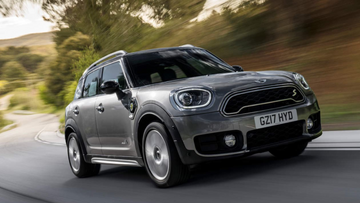
What are Hybrid Cars?
The term 'hybrid' traces its origins to the Latin word 'hybrida,' referring to the offspring of a domestic pig and a wild boar. Over time, it has been applied to various contexts, including plants created from two different species. In 1997, it made its debut in the automotive world with the introduction of the Toyota Prius, a pioneering petrol-electric hybrid.
Hybrid cars, in general, combine the power of an internal combustion engine with that of a battery and an electric motor. While most hybrid cars use a petrol engine paired with an electric motor, a few rare models utilise a diesel-electric combination.
How Do Hybrid Cars Work?
Hybrid cars operate with the intention of using the petrol engine for longer journeys, while the battery and electric motor take charge for shorter trips, especially in urban settings where emissions are a primary concern.
Types of Hybrid Cars
-
Self-Charging Hybrid:
- Cannot be plugged in; batteries are charged by the petrol engine or regenerative braking.
- Limited all-electric range for short distances and low speeds.
- Examples: Toyota, Lexus, Renault Clio, Ford Kuga.
-
Plug-in Hybrid (PHEV):
- Batteries can be charged from a socket.
- Longer all-electric range and higher speeds compared to self-charging hybrids.
- Examples: Volkswagen Golf, Porsche Cayenne, McLaren Artura, Ferrari SF90 Stradale.
-
Mild Hybrid:
- Have a small electric motor and battery, but can't run solely on electricity.
- Assist the engine during acceleration and allow coasting with the engine off.
- Similar to a sophisticated stop-start system.
Benefits of Hybrid Cars
Self-Charging Hybrid Benefits:
- Improved fuel economy, especially in urban driving.
- Zero-emission mode for short, low-speed trips.
- Known for smooth operation and reliability.
- No need for regular charging.
- Typically more affordable than PHEVs.
Plug-in Hybrid Benefits:
- Tax advantages for company car drivers.
- Significant all-electric range for emissions-free commuting.
- Flexibility to operate like an electric car when charged.
- Suitable for both performance and economy-oriented driving.
Disadvantages of Hybrid Cars
Self-Charging Hybrid Disadvantages:
- Reliance on petrol engine for most driving.
- Less advantageous for company car tax.
- Not known for engaging driving experiences.
Plug-in Hybrid Disadvantages:
- Higher upfront cost compared to self-charging hybrids and conventional cars.
- Requires regular charging for optimal efficiency.
- Reduced fuel economy if the battery isn't charged frequently.
- Heavier than conventional vehicles.
Is a Hybrid Car Worth It?
The choice of whether a hybrid car is worth it depends on your driving habits and requirements. For high-mileage drivers primarily on highways, diesel cars may offer better economy. Company car drivers may benefit from tax advantages with PHEVs, especially for short commutes. Urban drivers seeking a smooth and quiet ride might find self-charging hybrids appealing. Normal or average drivers could consider both PHEVs and self-charging hybrids, but keep in mind that conventional petrol or diesel models are typically more affordable upfront. Evaluate the pros and cons to make an informed decision.
